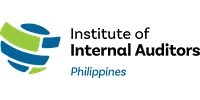Event Details
Focus and Features
This seminar is designed to familiarize participants with Agile principles and practices applied specifically to auditing processes. Attendees will explore how Agile methods can enhance audit efficiency, flexibility, and responsiveness to organizational needs. Topics covered may include iterative planning, continuous feedback, adaptive risk assessment, and collaborative approaches to auditing. The seminar aims to equip auditors with foundational knowledge and strategies to leverage Agile frameworks effectively within their auditing practices, fostering a more dynamic and value-driven audit approach.
The objectives of this training are as follows:
- Describe Agile auditing.
- Examine the compatibility of Agile auditing with the Standards.
- Recognize Agile software development methodologies.
- Explain the scrum process framework.
- Summarize the value of various Agile auditing iterations, including Agile Lean, Agile Lite, and Full Agile.
- Recognize change management considerations and other success factors for implementing Agile auditing.
- Construct Agile auditing artifacts.
- Perform Agile auditing ceremonies
- Understand Agile auditing application
What You Will Learn:
Unit 1: Defining Agile Auditing
- History of Agile Auditing
- Emergence of auditing with "agility."
- Agile "big A."
- Comparing agile internal auditing to traditional internal auditing.
- Comparing agile internal auditing to risk-based auditing
- The Agile Philosophy/ Manifesto
- The 12 Agile Principles
Unit 2: Understanding Agile Auditing
- Characteristics of Agile Auditing
- Why Agile Audit?
- How Agile concept is Applied in Audit
- The core components of Agile Audit
- IA Methodology- Waterfall Approach vs. Agile Audit Approach
Unit 3: Scrum Process Framework and Audit Application
- Scrum overview
- Scrum roles
- Sprints and sprint ceremonies
- Audit Planning and Preliminary Work
- Audit Execution using Scrum Framework
- Audit Fieldwork and Scrum
Unit 4: Kanban Process Overview
- Definition and history of Kanban
- Kanban Step-by-Step Process
- Application of Kanban in Agile Auditing
- Scrum vs. Kanban
- Practical Approach in Agile Auditing
Unit 5: Case Study- Application of Agile Auditing
- Case Study- DBS Bank implementation of Agile Audit
- Case Scenarios in Agile Auditing
Unit 6: Wrap-up/ Q&A Session
- Best ideas and insights
- Short Quiz
- Q&A
Who Should attend
This course will benefit chief audit executives (CAEs) and audit directors and managers who want to better understand the value of Agile auditing and learn how to implement Agile auditing methodologies.
The course also is a great tool for training staff of internal audit departments that are making the transition to Agile auditing using scrum.
Number of CPE units: 3
Privacy Notice: We collect your personal information to register you in our training/ membership events and photos/videos will be taken for evidentiary purposes in relation to IIAP Seminars. We will use this information to provide services regarding your attendance and if you agree, to send you marketing information.
By giving us your personal information you consent to our use of it for the purposes described in this Privacy Notice.




